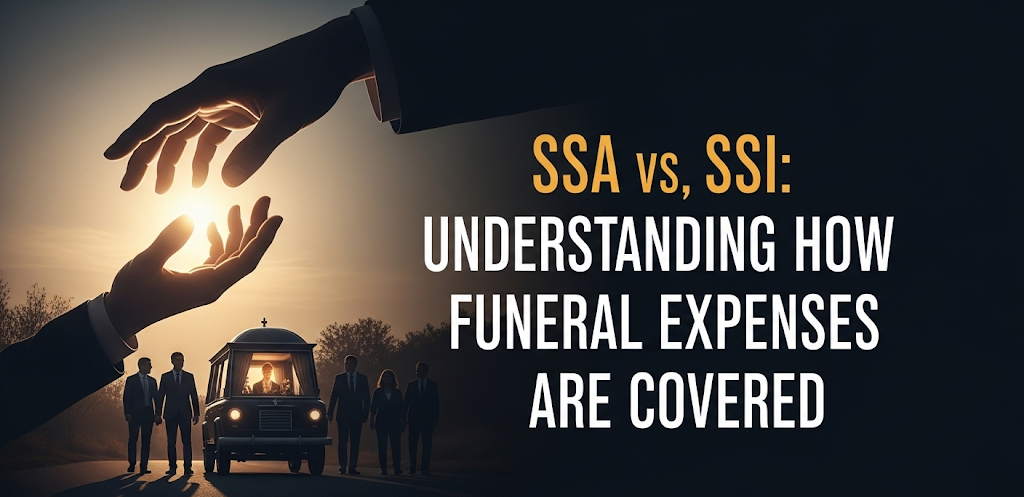Understanding Probate in New Jersey
A Guide for Navigating the Surrogate’s Office

Losing a loved one is never easy—and understanding the legal responsibilities that follow can be overwhelming. One of the first steps in settling a loved one’s affairs is probate, the legal process of administering a person’s estate. In New Jersey, this process is overseen by the Surrogate’s Court in the county where the deceased person resided.
At Creran Celebration Etherington & Creran Funeral Homes, we believe in empowering families with compassionate guidance and clarity. Here’s what you need to know about the probate process, the role of the Surrogate’s Office, and your responsibilities as an executor or administrator.
📜 Testate vs. Intestate: What’s the Difference?
- Testate means the deceased left a
valid Last Will and Testament. The will names an
executor who is legally responsible for carrying out the wishes of the deceased.
- Intestate means the deceased passed away
without a will. In this case, the court appoints an
administrator (usually a close relative) to manage and distribute the estate according to
New Jersey intestacy laws.
✔️ What Makes a Will Valid in New Jersey?
To be considered valid under New Jersey law, a Last Will and Testament must:
- Be in
writing
- Be
signed by the person making the will (the "testator")
- Be
witnessed by two people
- Be executed voluntarily, by someone who is
at least 18 and of
sound mind
Note: Handwritten (holographic) wills are valid in NJ under limited circumstances, but they must be proven in court.
🏢 What Is the Role of the Surrogate’s Office?
Each county in New Jersey has a Surrogate’s Court, which is responsible for:
- Probating wills
- Appointing executors and administrators
- Overseeing the estate settlement process
- Approving guardianships and adoptions
The Surrogate’s Office issues the legal documents that authorize the executor or administrator to act on behalf of the estate.
📄 Letters Testamentary vs. Short Certificates: What’s the Difference?
After the will is probated or an administrator is appointed, the Surrogate’s Office issues official documents that allow the estate’s representative to manage affairs.
Letters Testamentary
- Issued when the deceased
had a will
- Officially appoints the
executor and grants them authority to act
- Often required to access accounts, sell property, or file taxes
Short Certificates
- A
certified summary document issued by the Surrogate’s Office
- Acts as
proof of the executor or administrator’s authority
- Used frequently to present to
banks, insurance companies, or other institutions
- Multiple copies are usually needed (each copy may cost ~$5–$10)
Think of Letters Testamentary as the full legal appointment, and Short Certificates as your "portable proof" to show others you're legally authorized to act on behalf of the estate.
📁 What Documents and Information Do You Need?
Whether you’re the named executor or have been appointed as an administrator, you’ll typically need to bring the following to the Surrogate’s Office:
✅ Certified copy of the
death certificate
✅ The
original Last Will and Testament (if there is one)
✅ Photo ID of the executor/administrator
✅ Contact info and addresses of heirs and beneficiaries
✅ Completed application provided by the Surrogate’s Office
✅ Payment for court filing fees (varies by county and estate size)
🏦 Setting Up an Estate Bank Account & Obtaining a Federal Tax ID (EIN)
Before you can open an estate bank account to manage assets, pay bills, and distribute funds, you’ll need to obtain a Federal Tax Identification Number, also known as an Employer Identification Number (EIN), from the IRS.
🖥️ How to Get an EIN:
- Visit the
official IRS website: https://www.irs.gov
- Use the
“Apply for an EIN Online” tool
- Select "Estate" as the type of entity
✅ Important: There is no fee to obtain an EIN from the IRS.
🚫 Beware of deceptive websites that charge a fee to "help" you apply. These sites often appear official, but they are not affiliated with the IRS. If you’re asked to pay, you’re on the wrong site.
Once you have the EIN, you can:
- Open a dedicated
estate bank account
- Use it to receive funds, pay expenses, and manage disbursements
🔐 Understanding Executor or Administrator Bonds
In some cases, the Surrogate will require the executor or administrator to be bonded—especially if there is no will or the will does not waive the bond requirement. A surety bond acts as an insurance policy that protects the estate from potential errors or misconduct.
- Cost: Usually
$5–$10 per $1,000 of estate value
- Based on: The
size of the estate and the
executor’s credit history
- Purpose: To ensure fiduciary duties are performed ethically and responsibly
🧾 Taxes, Fees, and Inheritance Responsibilities
The executor is responsible for handling several financial obligations on behalf of the estate:
🔹 Federal Responsibilities:
- Filing the decedent’s
final income tax return
- Filing
estate tax returns (for estates over the federal threshold, currently $13.61 million in 2024)
🔹 New Jersey State Responsibilities:
- Filing the
NJ Inheritance Tax Return (if applicable; based on the heir’s relationship to the decedent)
- Filing the
NJ Estate Tax Return (NJ estate tax was phased out for deaths after Jan 1, 2018)
- Settling any
outstanding debts, utility bills, loans, or credit cards
- Paying
probate fees (generally modest in NJ, often under $200)
🔹 Beneficiary Responsibilities:
- Class A beneficiaries (spouse, children, grandchildren, parents) are
exempt from NJ inheritance tax
- Class C and D beneficiaries (siblings, friends, distant relatives) may be subject to
inheritance tax rates of 11%–16%
📂 How to Open and Close an Estate in New Jersey
✅ Opening the Estate:
- Visit the county Surrogate’s Office
- Submit required documents and pay filing fees
- Obtain
Letters Testamentary or
Letters of Administration
- Obtain a
Federal EIN from IRS.gov
- Open an
estate bank account
- Notify banks, creditors, and beneficiaries
- Gather and appraise assets
✅ Closing the Estate:
- Pay all debts, taxes, and expenses
- Prepare an
accounting of all transactions
- Distribute assets to beneficiaries
- Obtain
release and refunding bonds (proof that heirs received their share)
- File for
discharge with the Surrogate’s Court
The process may take 6 to 12 months or longer, depending on the complexity of the estate.
🕊️ Final Thoughts
Probate can feel daunting, especially in the midst of grief. The Surrogate’s Court exists to ensure that estates are handled lawfully and fairly. Whether you’re named in a will or stepping up to help in the absence of one, knowing your responsibilities—and having the right guidance—can make all the difference.
If you need support or resources during this process, Creran Celebration Etherington & Creran Funeral Homes is here to walk beside you every step of the way.
📞 Have Questions About Probate?
We’re here to help. Contact us at (856) 854-2846 or text (856) 208-7408
to speak with Dennis C. McGee, Jr.
#crerancelebration #heartfelt













